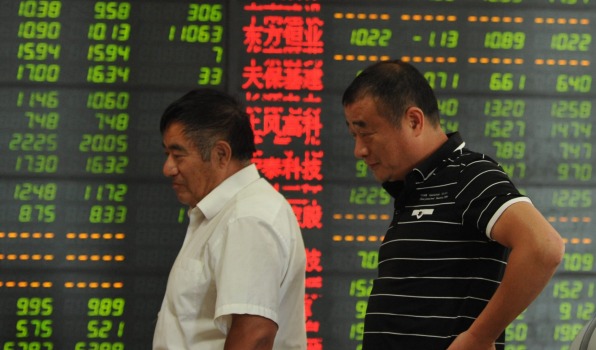-
Tips for becoming a good boxer - November 6, 2020
-
7 expert tips for making your hens night a memorable one - November 6, 2020
-
5 reasons to host your Christmas party on a cruise boat - November 6, 2020
-
What to do when you’re charged with a crime - November 6, 2020
-
Should you get one or multiple dogs? Here’s all you need to know - November 3, 2020
-
A Guide: How to Build Your Very Own Magic Mirror - February 14, 2019
-
Our Top Inspirational Baseball Stars - November 24, 2018
-
Five Tech Tools That Will Help You Turn Your Blog into a Business - November 24, 2018
-
How to Indulge on Vacation without Expanding Your Waist - November 9, 2018
-
5 Strategies for Businesses to Appeal to Today’s Increasingly Mobile-Crazed Customers - November 9, 2018
China’s Secret Weapon: The Circuit Breaker
Deng Ge, the CSRC spokesman, said on Tuesday that the new regulation of share sales by major shareholders will include a predisclosure system, selling restrictions and mechanisms such as block trading and private negotiations to reduce the negative impact on the capital market.
Advertisement
The circuit breaker mechanism, which kicked in on Monday after the CSI 300 index fell by 7 percent, has come under some criticism and there are calls to set the threshold higher, especially given the volatility in Chinese markets.
“We’ve been waiting for a market drop like this for a long time”, said Samuel Chien, a partner of Shanghai-based hedge fund manager BoomTrend Investment Management Co.
In an effort to stabilize its volatile market after Monday’s collapse, the Chinese government used state-controlled funds to begin buying up large amounts of stock Tuesday.
China’s CSI 300 index rose 0.3% at the close, after earlier falling more than 2%.
CSRC is reportedly considering measures such as large shareholders having to disclose plans to offload shares in advance, which will allow smaller investors to sell-out first, thereby lowering the stock price. Listed companies were encouraged to issue statements saying they’re willing to halt such sales, they said.
While the CSRC reiterated that circuit breakers play an important role in stabilising the market, Citigroup, Deutsche Bank and Nomura Holdings said the rules failed to restore calm as investors scrambled to exit positions before getting locked in by the halts.
Reuters reported that at least 10 companies said their main shareholders had agreed not sell shares on the secondary market within the next six or 12 months.
But analysts said the “circuit breaker” risked interfering with market efficiency and could even prove counter-productive, heightening volatility instead of reducing it.
Officials at the China Securities Regulatory Commission declined to comment on the matter when contacted.
The markets were down partly on concerns that a six-month ban on share sales by major shareholders would spark a sell-off when it expires on Jan 8.
Advertisement
The experience has further rattled some retail investors – who dominate transactions on Chinese exchanges.





























